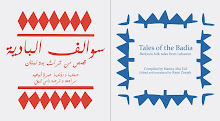Lubiyeh (green beans) are in abundant supply and are at 2,500 LL/kilo. Bazela (green peas) have arrived, and are at 3,500 LL/kilo. They are described as "English" in terms of their seed origin.
There are three kinds of dates in the market now: "bilih" (fresh yellow); "kaghlooleh" (large red), and "tamr" (medium-sized and dried).
It is possible to grow date palms from seed. Take the dateseeds from the variety you would like to grow and soak them in water for four days, changing the water each day. At the end of four days, scrub away any remaining date flesh and fine hairs; place each seed in a separate pot of sterilized potting soil. Water as needed; it is important that the soil not go dry. Be patient!
The date palm sends down a tap root first before a sprout will appear; this can take upwards of four to five weeks--the warmer the location of the container, the sooner the germination. After this time, a green shoot will appear, at which point the seedling should be transferred to a larger container.
Mangoes are from Egypt and are at 6,000 LL/kilo.
The Khudarji Report, by Zayd, reflects conditions unique to a neighborhood in central Beirut; the status at your local mahal al-khudra will most likely vary.















+081.jpg)


